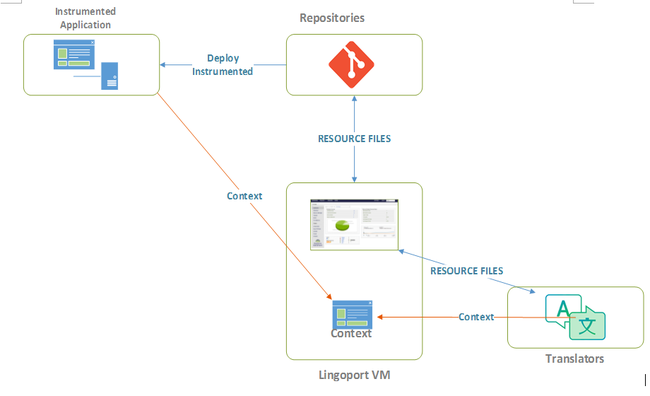Difference between revisions of "About InContext Translation"
(Created page with "= High Level Goals = * The Lingoport InContext Translation allows for a better-quality translation earlier with possibly reduced need for downstream Linguistic QA. Lingoport i...") |
(→System Overview) |
||
| Line 8: | Line 8: | ||
= System Overview = |
= System Overview = |
||
| − | [[File: |
+ | [[File:Lingoport_incontext_translation.png|650px]] |
For an on-boarded repository, the happy path looks like: |
For an on-boarded repository, the happy path looks like: |
||
Revision as of 18:28, 19 February 2019
High Level Goals
- The Lingoport InContext Translation allows for a better-quality translation earlier with possibly reduced need for downstream Linguistic QA. Lingoport is not a translation company or a TMS vendor. The aim of In Context Translation is to provide TMS with the ability to associate segments with context.
Benefits
System Overview
For an on-boarded repository, the happy path looks like:
- The repositories contain base resource files created by developers and files translated by LSP.
- LRM analyzes resource files and instrument both base and target files
- LRM pushes the instrumented files to the repository
- An instrumented build gets deployed
- With each navigation to a new page on the instrumented deployment, InContext Capture chrome extension saves the context back to the Lingoport VM and sends the association between the context and each of the base resources
- When files are sent to translation, each segment may have a context, a URL, pointing back to a Lingoport Context Server
